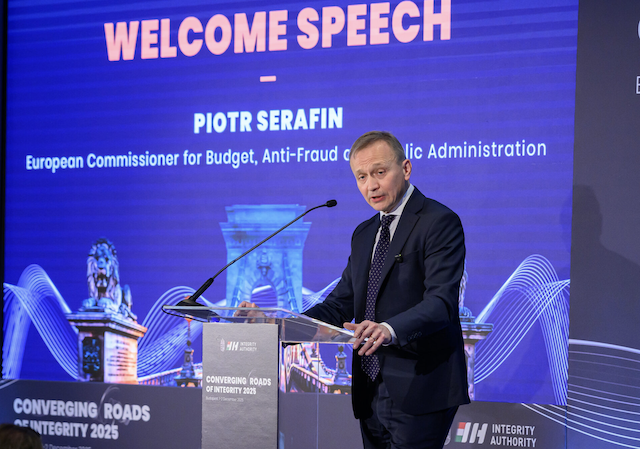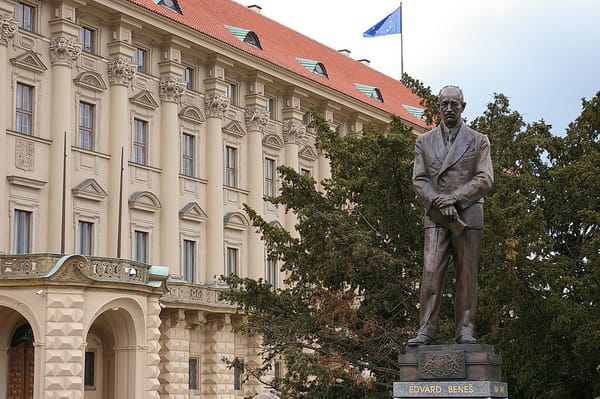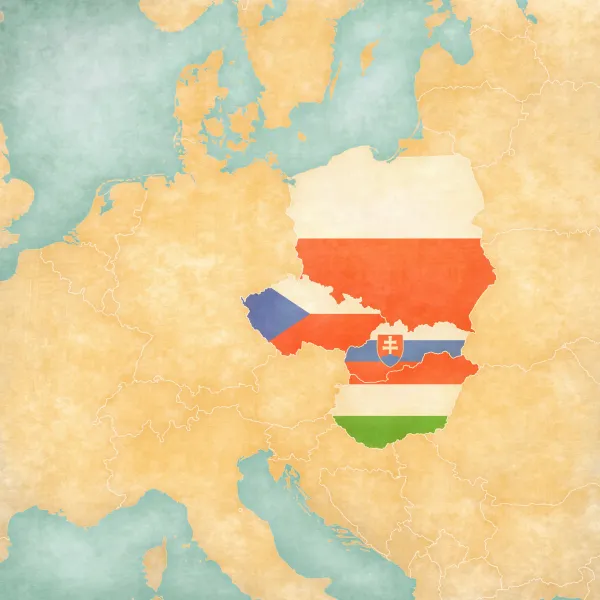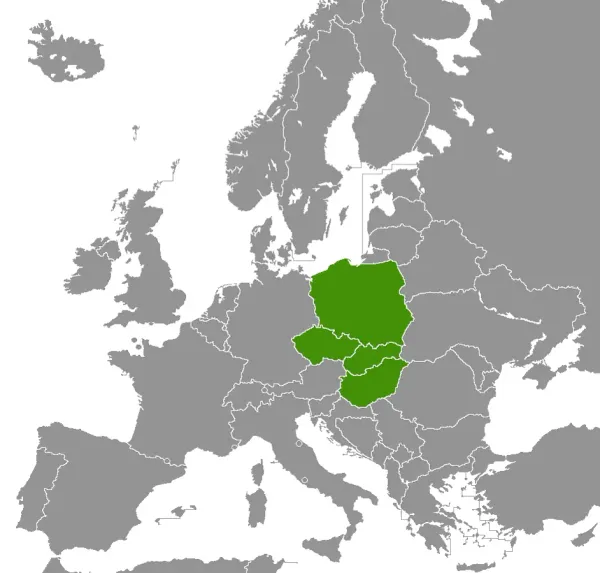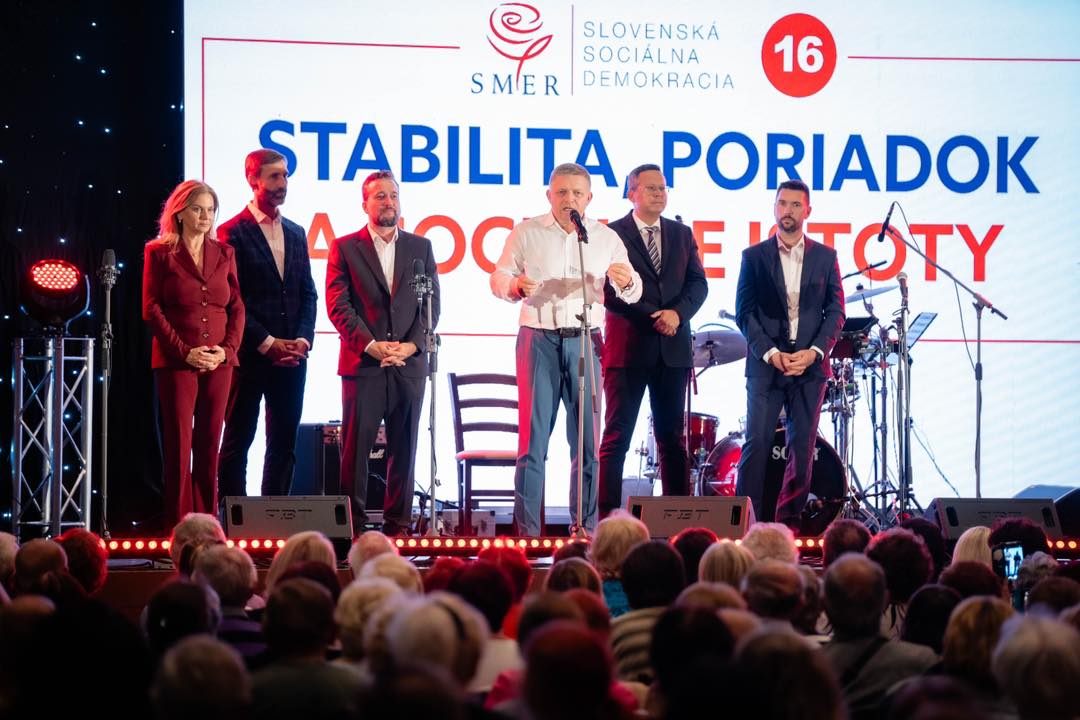
Russia on voters' minds as Slovakia goes to polls
Left-wing nationalist populist party Slovak Social Democracy (SMER-SD) is predicted to secure the most votes at the general election on Saturday, 30 September.
The party is led by former Prime Minister Robert Fico, whose last government fell in 2018, a watershed year for Slovak politics, after the murder of journalist Jan Kuciak and his partner Martina Kusnirova sparked nationwide protests.
However, polls suggest that Slovak voters could reject the pro-Western coalition that has been in power since early 2020, which has emphasised geopolitical consensus with NATO and the EU, and domestic growth.
Far-right parties Republika and the Slovak National Party (SNS) could also gain seats in the 150-seat National Council.
Fico gov’t could turn towards Russia
The election results could significantly impact Slovakia’s foreign policy orientation and reform agenda. Possible scenarios include a government led by SMER, a centrist coalition of centre-left and centre-right parties, or a left-leaning coalition led by Peter Pellegrini, who served as prime minister from 2018-20.
Each scenario carries implications for Slovakia’s alignment with the West, as well as domestic reforms. A victory for Fico could see a shift away from pro-Western and pro-Ukraine policies, which would be problematic for the EU and NATO, as the former PM could modify Slovakia’s Euro-Atlantic foreign policy. As Fico recently told a recent political rally in Banovce nad Bebravou, west Slovakia: ‘We are a peaceful country – we will not send a single round to Ukraine.”
Ruling coalition improved corruption rating, diversified energy
Highly dependent on the German car industry, Slovakia has performed well economically under the current coalition, although issues remain around inflation, infrastructure, public finances and unemployment. The transition to electric vehicles will be crucial for the country’s economic sustainability.
Slovakia has also diversified its energy sources, reducing its reliance on Russian gas and nuclear fuel. Moreover, Slovakia has provided military assistance, including air defence systems and military equipment, to Ukraine and has actively supported EU sanctions against Russia.
The coalition has also made efforts to combat corruption and enhance the rule of law, after only two minister-level people had been convicted of corruption between 1993 and 2019.
Since 2019 more than 60 officials, including Fico, have been implicated in corruption by new anti-corruption structures. Once referred to as “the black hole of Europe” in the late 1990s, Transparency International has recognised Slovakia’s recent efforts with its all-time best anti-corruption index ranking.
Disinformation boosted Russia’s approval rating
Since Russia’s full-scale invasion of Ukraine 18 months ago, the Kremlin has strongly targeted Slovakia with disinformation campaigns, undermining support for both Ukraine and the coalition government.
A Globsec survey earlier this year revealed that only 40% of Slovaks believed Russia was primarily responsible for invading Ukraine, the lowest figure in central and eastern Europe.
The country’s susceptibility to false information was also evidenced by over 40,000 Slovaks signing a petition to avoid potential mobilisation to Ukraine.
Fico could be cautious regarding Russia as PM
Fico added at the rally that “They will have to sit down anyway and find an agreement,” while also suggesting that Russia would never relinquish control of Crimea and the territories it currently holds.
Despite concerns from allies, Fico’s previous pragmatic approach when in power suggests he will prioritize economic interests and pragmatism. Additionally, the EU wields financial leverage over Slovakia, whose fiscal deficit is projected to be the euro zone’s highest this year.
Ukrainian officials express concerns about the possibility of an alliance with Hungary’s radical right Prime Minister Viktor Orban but noted that even Hungary mainly aligns with important EU decisions. Fico’s victory is not guaranteed, and forming a coalition government could prove challenging, as no single party will secure a majority.


